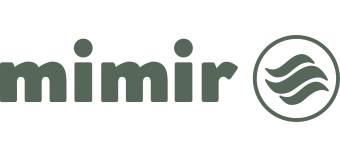
Jobs posted by Universiteit Twente
Mimir provides the automated job management of jobs on job boards for Universiteit Twente.
Latest jobs
EngD position in Film Thickness measurement in Large bearings
Large Rolling Element Bearings are in use in many application such as trains, wind turbines, cranes, and other industrial applications. These bearings enable the rotation inside these systems, for example of the train wheels. If these bearings fail, this often means that the whole system cannot function anymore and must be repaired causing high costs and disruptions.
In this project a system will be designed which enables the measurement of the lubrication state inside grease lubricated bearings. The system will make use of electrical methods and can thus be applied to real bearings. With the help of this system it will be possible to improve and fine tune the life time models. Furthermore, they may enable users to actually base their maintenance on the real condition inside the bearing. This will allow the maintenance to be done at an optimal time and thus save material and make the systems more reliable. It also supplies a tool to study the lubrication of large bearings in more detail which can lead to development and optimisation of future systems.
The position will be embedded in the SKF University Technology Centre (UTC) on grease lubrication and is linked to the Surface Technology and Tribology and the Tribology Based Maintenance (TBM) chairs. Our enthusiastic group is highly international and has a long history of research in the area of tribology. Our research combines both experimental research as well as model development in diverse tribology and degradation related topics.
The implemented system relies on the electrical impedance of a lubricated contact. By using the capacitance of the system the film thickness can be determined. The electrical resistance can be used to understand lubricant changes as well as mixed lubrication conditions. An existing model can be used to infer from the measured total impedance to the impedance of all the inhomougenously loaded contacts within the bearing.
The design work in this project entails the technical steps:
- Mechanical and electrical implementation
- Development of an evaluation methodology
- Building and implementing in experimental bearing setup
- Validation, Reporting and Handbook writing.
The candidate is expected to plan and carry out their research in alignment with the project goal. They will report during progress meetings of our research group and with the project partner. The industrial partner will be actively involved in the project by discussions, performing analysis and experiments.
The university offers a very stimulating scientific environment and a dynamic ecosystem with enthusiastic colleagues in which internationalization is an important aspect of the strategic agenda.
AcademicTransfer
4 applications
0 views
02-03-2026 Universiteit Twente
Two PhD positions in the Department of Molecules and Materials on the Development of Degradable Polymers with In-situ Optica...
HyFINE is a national project uniting a consortium of knowledge institutes and businesses to make chemicals greener and affordable. We are shifting from fossil feedstocks like oils and gas to sustainable sources like waste, using clean energy like green hydrogen and renewable electricity. The goal is to create climate-neutral, circular production of ingredients for applications such as adhesives, paints, plastics and cosmetics. Beyond technology development, HyFINE focuses on training new experts and sharing knowledge to establish the Netherlands as a leader in green chemistry.(www.nwo.nl/en/news/193-million-euro-for-consortium-that-makes-special-and-fine-chemicals-more-sustainable)
As a PhD student within the HyFINE consortium, you'll be at the forefront of developing degradable polymers that may be used in a variety of consumer and industrial application. You'll leverage your expertise in organic chemistry to modify polymers using green chemistry and hydrogen/electrons/photons, enabling biodegradability. You’ll systematically study the impact of molecular structural parameters on material properties and biodegradability (‘structure-degradation correlation’). You’ll also optimize light source for the degradation, and develop in-situ optical sensing platform (e.g., UV-VIS and Raman spectroscopies) to monitor the degradation rate. You will work closely with industrial partners to source the starting polymers, have access to their biodegradation platform for testing modified polymers, and gain advice on targeting material properties of the polymers.
What sets this opportunity apart:
Real-world impact: Collaborate closely with academic and industrial partners, upscaling your synthesized materials, and building your sensing platform for real-world testing and fine-tuning your work based on industry feedback.
World-class facilities: Conduct your research at the University of Twente, a vibrant campus in the east of the Netherlands equipped with state-of-the-art facilities.
Expert guidance: Work alongside renowned experts Prof. Frederik Wurm and Dr. Ivana Qianqi Lin in the Sustainable Polymer Chemistry and Hybrid Materials for Opto-electronics group within the Department of Molecules and Materials, as well as industrial researchers in BASF and SULIS Polymers.
This is your chance to contribute to a more sustainable future while advancing your research career at a leading European university.
Join us in shaping the future of sustainable materials and technologies!
AcademicTransfer
9 applications
0 views
02-03-2026 Universiteit Twente
Postdoc position in open-source respiratory signal analysis (M3RESP)
You will work on the development of M3Resp, a new open-source FAIR platform for multimodal monitoring of respiratory signals in the Intensive Care setting, including surface EMG (sEMG), electrical impedance tomography (EIT), mechanical ventilator waveforms, and respiratory muscle pressures. This project is a close collaboration between the University of Twente (CRPH - Cardiovascular and Respiratory Physiology group, sEMG expertise center) and the Intensive Care department of the Erasmus MC (ROTARC - Rotterdam Advanced Respiratory Care group, EIT expertise center), two internationally leading institutes in respiratory and mechanical ventilation research. Open Science NL provides the funding to stimulate open, reusable, community-driven research software. Both institutions provide a full-time position each for the duration of 1 year, and both candidates will closely collaborate with each other and with data researchers in building a sustainable national digital research infrastructure.
By integrating and extending two existing research software packages (ALIVE and ReSurfEMG), you will enable unified data handling, signal processing, and user-friendly GUI-based analyses for clinical and physiological research.
You will combine Python-based software development, biomedical signal processing, and FAIR data design, and contribute to a platform that supports researchers in understanding and analyzing complex respiratory time-series data.
You will merge codebases, implement dedicated data containers, port and optimize signal processing algorithms, build a Dash-based GUI, and develop standardized analysis pipelines. The role includes community-oriented tasks such as documentation, tutorials, and user support. The work requires strong programming skills, experience with time-series data, and an interest in biomedical signals and open-source research software.
AcademicTransfer
3 applications
0 views
23-02-2026 Universiteit Twente
PhD position on: “Functional Membranes through advanced foaming”
Within Membrane Surface Science (MSuS), part of the Department of Membrane Science & Technology (MST, www.membrane.nl), and Advanced Organ Bio-engineering and Therapeutics (AOT), both of the University of Twente, the Netherlands, we have a vacancy for a PhD student.
The project will focus on the production and characterization of a functional membranes, e.g. membranes that hold an additional functionality beyond separation such as absorbative or catalytic properties. The functionality will come from the addition of (nano)particles during the production process, including a foaming step to increase access to these functional particles. Such membranes will be relevant to several important applications, ranging from the removal of micropollutants from waste water and drinking water, but also the removal of protein bound toxins in kidney dialysis.
The project is part of a larger NWO-VICI project, and as such the recruited PhD student will be expected to closely collaborate with at least 2 other PhD students and one postdoc within the project. While this PhD project will focus on sustainable membrane production, others will focus on advanced functionalities and on upscaling of these most promising membranes. This team oriented research project is intended to be a highly collaborative environment. Moreover, the project will be well integrated in the MSuS and AOT groups, allowing extensive collaboration and knowledge exchange.
As part of the PhD program, you would have the opportunity to receive further education within the Twente Graduate School and within various graduate education programmes in the Netherlands. Furthermore, you will be expected to actively contribute to the teaching program, e.g. by supervising BSc and MSc assignments or by acting as teaching assistants in courses taught by department staff members.
AcademicTransfer
27 applications
0 views
23-02-2026 Universiteit Twente
Venture Manager
Maak impact met ondernemerschap en innovatie
Bij Universiteit Twente geloven we in het verbinden van wetenschap en ondernemerschap. Wij zijn dé ondernemende universiteit van Nederland, waar baanbrekend onderzoek leidt tot startups die maatschappelijke en economische waarde creëren. Met een sterke focus op hightech en mensgerichte innovatie is UT een broedplaats voor ideeën die de wereld veranderen. We hebben een groeiend portfolio van spin-offs en werken nauw samen met investeerders, bedrijven en kennisinstellingen om innovatie te versnellen.
Jouw rol als venture manager
De Venture Manager is verantwoordelijk voor het begeleiden en ondersteunen van een portfolio van veelbelovende (deeptech) start-ups die als spin-off vanuit de Universiteit Twente zijn ontstaan. Je combineert strategisch inzicht, ondernemerschap en financiele expertise om de ventures zich te laten floreren en groeien.
Werkzaamheden
Als venture manager:
- Ben je vanuit de aandeelhoudersrol verantwoordelijk voor een significant aantal spin offs (ventures) in het portfolio;
- Coach je het spin-off team bij het ontwikkelproces van de onderneming en help je de groeikans te versnellen via je eigen inzet en connecties met bedrijfsleven, financiers en overheid;
- Signaleer je financieringskansen en begeleid je bij investeringsvraagstukken, daarbij ondersteun je bij het opstellen van een onderbouwde kapitaalbehoefte en helpt bij het voorbereiden van pitches richting investeerders of fondsen.
- Afhankelijk van de fase van de spin-off en daarmee samenhangend de samenstelling van de aandeelhouders heb je in sommige trajecten een co-leading rol, een sparrende of volgende rol;
- Je verbindt het spin-off team met onder andere relevante experts, investeerders en fondsen;
- Draag je actief bij aan een sterk, samenwerkend startup/spin-off ecosysteem;
- Vertegenwoordig je UTH op netwerkbijeenkomsten en events;
- Registreer je de voortgang, begeleidingsactiviteiten en resultaten van de ventures in je portfolio om daarmee de impact zichtbaar te maken.
AcademicTransfer
0 applications
0 views
23-02-2026 Universiteit Twente


